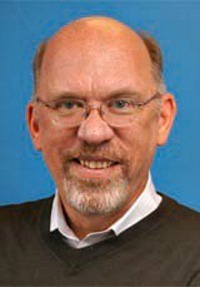
An ESTEEM student in Jeff Kantor’s class couldn’t wait to take what she learned about job shop scheduling back to her family’s small business in Michigan. When the license for the sophisticated software in the class turned out to be too costly for the company, Kantor developed a web application with open source tools for the task. Since it launched in early 2013, more than 3,700 people in 92 countries have visited the page – and Kantor has adjusted his teaching perspective.
“As a chemical engineer, I am used to training students for employment in the oil and gas sector, large chemical companies, large pharmaceuticals,” says Kantor, who has been on the chemical engineering faculty at Notre Dame since 1981. “That’s different from training students in an environment where they may be setting up the business themselves. That challenged me to revise my teaching and the tools I am teaching with so they can be accessible not only to people who work in large corporations, but also to engineers that go into startup situations where they don’t have a lot of resources.”
Kantor was Vice President and Associate Provost from 1996-2001 and Vice President for Graduate Studies and Research and Dean of the Graduate School from 2001-2006, where he became familiar with the McCloskey Business Plan Competition in the Mendoza College of Business. He was involved in the early planning for Innovation Park, and involved in recruiting Executive Director David Brenner.
“I got more interested in the link between business and engineering and entrepreneurship,” says Kantor, who developed a nine-lecture course for the first ESTEEM class that has grown to 13 lectures. “They’re a much broader spectrum of students than I would normally encounter. They’re interested in building businesses or taking intellectual property to market. You have to be a much closer to the applications – less theory, more applications. They want to understand theory in a way that affects them. It’s a bit different teaching style for me. I’ve enjoyed coming to grips with that. It is an important focus of the ESTEEM program that has helped in other areas of my teaching and research.”